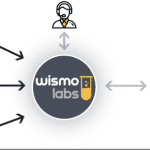In today’s hyperconnected world, international networking has become fundamental to business growth, collaboration, and global influence. As organizations expand beyond borders and individuals seek meaningful connections across time zones, accurate time data emerges as an indispensable tool to bridge geographical gaps and foster seamless communication. The precision of timekeeping affects every interaction, decision-making process, and strategic initiative in the international arena. This article delves into how accurate time data can significantly enhance international networking by optimizing communication, increasing reliability, and enabling strategic planning. Looking for reliable information? Head over to sure time now.
The Critical Role of Accurate Time Data in International Communication
Effective international networking depends on timely and synchronized communication. When professionals across continents engage in meetings, calls, or digital correspondence, even a minor misalignment in time can result in missed opportunities or misunderstandings. Accurate time data ensures that every party knows the exact moment an event or interaction occurs relative to their local time.
Miscommunication caused by incorrect time conversions can lead to missed meetings, reduced trust, and diminished productivity. For example, scheduling a conference call without properly accounting for daylight saving time adjustments or regional time differences risks confusion and inefficiency. Organizations safeguard their interactions against such pitfalls by employing precise time data and maintaining professionalism and reliability.
Enhancing Scheduling Efficiency with Precise Time Synchronization
Scheduling across time zones is one of the most challenging aspects of international networking. Coordinating meetings or events can become cumbersome and error-prone without accurate time data. Tools and systems that utilize real-time, verified time data allow stakeholders to identify overlapping working hours, optimize availability, and streamline the coordination process.
Global time synchronization protocols such as Network Time Protocol (NTP) and APIs provide exact time zone information, allowing professionals to avoid manual calculations or guesswork. These technologies enable calendar platforms to adjust meeting times based on participants’ locations automatically, reducing scheduling conflicts. This level of precision saves time and enhances the user experience, fostering more frequent and meaningful interactions.
Building Trust Through Reliability and Punctuality
In international networks, trust is often built on reliability and punctuality. When partners, clients, or collaborators consistently adhere to agreed-upon timelines, they develop confidence in the relationship. Accurate time data directly supports this by enabling all parties to act in unison, irrespective of geographic separation.
For multinational enterprises, where teams span multiple countries, synchronizing project timelines and deliverables with precise time data ensures everyone is aligned. This transparency reduces ambiguity and builds a culture of accountability. Punctuality, supported by reliable timekeeping, conveys respect for others’ time and strengthens professional bonds, which is critical for sustained international success.
Facilitating Global Virtual Events and Conferences
The surge in virtual conferences, webinars, and global summits necessitates impeccable timing coordination. Hosting international events without accurate time data invites chaos—participants might join late or miss sessions entirely. Accurate time data helps event organizers create detailed schedules that adapt to the participants’ respective time zones.
Furthermore, countdown timers, automated reminders, and live streaming schedules rely on precise time synchronization to function optimally. These features enhance attendee engagement, reduce confusion, and contribute to the overall success of international events. When participants feel confident in the timing and organization, they are more willing to engage and network effectively.
Improving Data Integrity and Security in Cross-Border Transactions
Accurate time data is essential for communication, data integrity, and security in international networking. Timestamping transactions, agreements, and communications ensures a verifiable record of when events occurred, which is critical for compliance, auditing, and dispute resolution.
Timestamp accuracy helps establish the authenticity and traceability of actions taken across borders in finance, legal, and technology sectors. This precise timekeeping reduces the risk of fraud and errors, providing a trustworthy foundation for complex international relationships. As a result, stakeholders can network and transact with increased confidence, knowing that the data is accurate and secure.
Leveraging Time Data to Optimize Workflow and Collaboration
Cross-border collaboration demands workflows accommodating different working hours, holidays, and cultural norms. Accurate time data facilitates this by helping teams identify optimal windows for collaboration, asynchronous task handoffs, and effective resource allocation.
Organizations can design workflows that minimize downtime and maximize output by analyzing time zone data alongside project management tools. For instance, teams can stagger shifts to maintain continuous progress or plan joint sessions during mutually convenient hours. This efficiency improves project outcomes and enhances employee satisfaction by respecting work-life balance across regions.
Integrating Accurate Time Data into Technology Platforms
Modern international networking increasingly relies on technology platforms integrating accurate time data to enhance user experience. Whether through messaging apps, CRM systems, or virtual meeting software, embedding precise, real-time time zone information ensures seamless interaction.
APIs such as Google Time Zone API or World Time API provide developers with tools to automatically convert, display, and manage time data across regions. These integrations reduce errors and simplify user interfaces, allowing professionals to focus on networking rather than navigating complex time zone challenges.
Furthermore, blockchain technology also leverages accurate timestamps to validate transactions globally, underscoring the importance of precise time data in emerging international networking tools.
Overcoming Cultural and Regional Barriers with Transparent Timing
Different cultures and regions have varied perceptions and practices regarding time. Some may value strict punctuality, while others adopt a more flexible approach. Accurate time data provides a neutral framework that helps bridge these differences by offering clear, objective timing references.
International partners can negotiate expectations more effectively by setting transparent timelines and deadlines anchored in precise time data. This clarity reduces misunderstandings and supports smoother collaboration. Additionally, awareness of regional holidays and working hours, enabled by accurate time databases, helps prevent scheduling faux pas and demonstrates cultural sensitivity.
Future Trends: The Growing Importance of Real-Time Global Time Data
As globalization accelerates and remote work becomes the norm, the demand for accurate time data will intensify. Innovations like artificial intelligence and machine learning will harness real-time data to predict optimal networking windows, automate scheduling, and personalize communication timing for better engagement.
Additionally, the rise of the Internet of Things (IoT) will connect devices globally, requiring synchronized timing to function flawlessly. International networking platforms will evolve to embed more sophisticated time management features, helping users navigate the complex web of global time zones effortlessly.
Organizations that invest in cutting-edge time data infrastructure will gain a competitive edge by fostering stronger, more reliable international connections.
Conclusion
The influence of accurate time data on international networking cannot be overstated. From improving scheduling efficiency and fostering trust to enabling secure transactions and overcoming cultural barriers, precise timekeeping forms the backbone of global collaboration. As businesses and individuals increasingly operate worldwide, harnessing accurate and real-time data will remain critical to nurturing productive, reliable, and meaningful international relationships.
By integrating sophisticated time data solutions and embracing emerging technologies, organizations can elevate their networking capabilities, streamline communication, and unlock new opportunities in the global marketplace.






